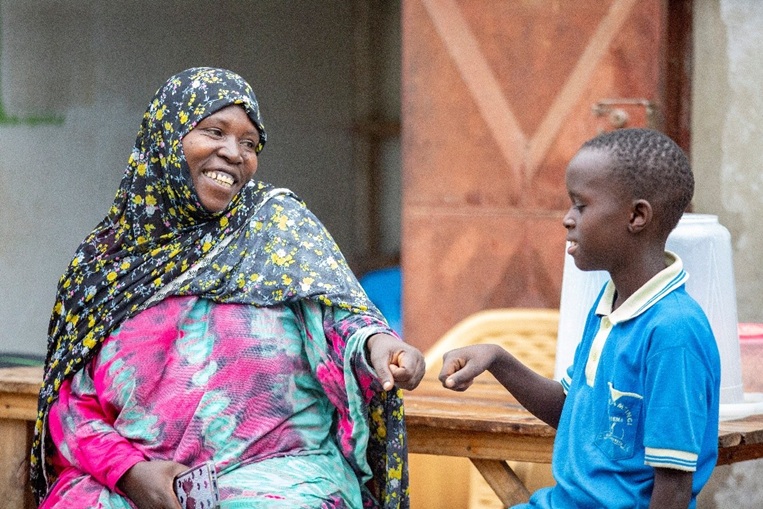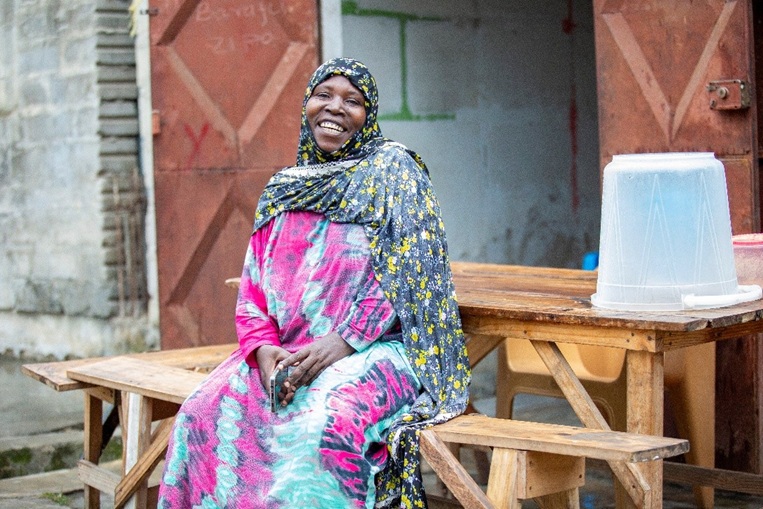ICDP Coast – Pwani Region, Tanzania
A total of 18 individuals qualified as facilitators in the autumn of 2025. Their training was sponsored by the Strømme Foundation, Norway.
A voice from us, new facilitators from Eastern part of Tanzania, November 2025:
Interaction with parents / caregivers worked very well for us. Their stories, their ownership of change in parenting skills and testimonies were indeed a wake-up call for us all. Among many changes impacted by ICDP knowledge, we were all taken aback by how great the effect of insulting name-calling is on children. We never thought that negative name-calling was affecting a child’s self-esteem and that it could disrupt the natural development of a child in many areas. This was an eye opener for us. We, together with caregivers, had to stop and rewrite our cultural application modes from negative consequences they imposed. As one facilitator member put it: “I wish everybody would participate in this training. We should all ask ourselves how our children perceive us caregivers”!
We altogether expressed the need of promoting “ICDP families” in our communities. Though, in the beginning of the training we were a bit sceptical, at the end of the training we agreed that the ICDP intervention was easily embraced with very good results. We all reached an understanding that ICDP was not for younger generations and their children, but for all generations. In fact, we realised that it is mostly parents and grandparent`s stories that put ICDP on the agenda. ICDP fits in with everybody. Some of us have no children of our own but we have become “watch dogs” for our sisters and other members of our families, not to mention our neighbours and their children. It is just magic the way we spontaneously apply it in our everyday interactions.
One of us recalled that the community members had given her a nick name “ICDP mother”. She said, “whenever they saw her approaching, they found time to sit down with her and start asking questions that are to do with a positive and healthy child upbringing”. This is an achievement, not only for us but for the rest of all those who have been touched by ICDP.
We shared stories from parents who now call themselves legitimately “ICDP parents”. One parent confessed to us after she had attended a few meetings she finally allowed her son to study music, a field we as parents always thought of as vulgar and not a serious profession- “fani ya kihuni” in Swahili language. Another parent used to cane her child just because the child spit saliva on the palm of her hand and brushed the saliva on her dress. ICDP changed her. In short, we agreed that ICDP is an agent of change, we just need to send a message that helps caregivers to recognise that “a child is a person”. In Swahili language this is now a slogan; “MTOTO NI MTU”
Children with health challenges such as physical disabilities, dyslexia, mental health issues are now receiving the ICDP approach. We received testimonies assuring us that some vulnerable groups are now no longer suffering violence, and are protected from being bullied – instead they are included in activities as far as their capacities allow.
We, as facilitators, are certainly helping others regarding healthy upbringing. When we acknowledge and applaud parents who have realized that corporal punishment is not a solution, this is an undeniably a result of ICDP.
Tanzania is a country with many ethnic groups. There are more that 130 languages spoken in Tanzania – all with different cultural practices. We, the facilitators in the Coast Region also come from different cultures under the same nation, Tanzania. Our ICDP gathering enriched our knowledge by sharing unique stories among us. This diverse cultural meeting gave us a wider perspective in collecting and comparing parents’ experiences from out there in the communities. Together with caregivers with different perspectives and practices in child’s upbringing, we have nevertheless been able to build a common ground for all, simply by sharing those experiences.
ICDP is not only a good platform but a “safe space”. It is solution-oriented, allowing you to let your children feel free to choose their professions, their dreams. ICDP nurtures peer living. Before ICDP, we deprived children of their role in forming their own future lives. However, with ICDP, we are now embracing a platform that will help their development. Meeting with parents was an added value both for them and their children, as well as for us with our families. Violence has become a stranger because “love wins all”.
Let us sum up our news by narrating a short story from Mossi Pembe (on photo above):
Mossi Pembe, a 46-year-old mother of three and grandmother of one from Bagamoyo community, once described herself as a very strict and feared parent.
“I used to be extremely harsh, and the entire community knew me for my tough nature,” she recalls. Her relationship with her children was strained, and communication within the family was almost non-existent.
Mossi admits that in her earlier parenting approach, she treated her children more like objects than individuals with feelings and needs. This deeply affected them and contributed to their misbehaviour, as they grew up in an environment dominated by fear rather than understanding. In her household, discipline was often enforced through punishment. “Whenever something went wrong, my first instinct was to beat them, not to ask questions,” Mossi says. This pattern created fear and silence among the children.
One painful example she remembers is when her grandson lost his school bag and exercise books. Out of fear of being beaten, he kept it a secret and went to school for a whole week without writing anything. When Mossi eventually found out, she reacted with anger and punished him severely without even asking for the reason. Incidents like this built a wall between her and the children, making them fearful and withdrawn.
Everything began to change when Mossi was introduced to ICDP. The training focused on positive parenting and how to raise children in a more loving and understanding environment. It became a turning point in her life.
“Through the knowledge I received, I have changed significantly. It has really helped me in raising my children and my grandchild,” Mossi shares.
The ICDP training opened her eyes to a new way of parenting one based on empathy, dialogue, and mutual respect, rather than fear and punishment.
“These days, I no longer rush to punish my children when something goes wrong. I take time to talk to them and understand the root cause of their behaviour,” she explains. “I listen to them more, and we have open conversations. I now use calm words to solve problems instead of shouting or beating.”
Her 11-year-old grandson, Shafii Haruna Juma (on photo below), has also noticed the transformation.

“I used to be afraid of my grandmother. She was always harsh and difficult to talk to,” he says. “But recently, she has changed. I haven’t been beaten in a long time. One day, my shoes were stolen at school, and I called her. To my surprise, she came to the school shortly after and helped me. I was so happy. I didn’t expect that at all. I thought she would beat me without even asking what had happened.”
Mossi’s transformation has not gone unnoticed. Her children now enjoy a closer and more loving relationship with their mother.
“I’ve also started to praise them when they do something good,” she says with a smile. “This is a big change for me. I never used to acknowledge their efforts before, but now I recognize and celebrate their achievements.”
She is deeply grateful for the knowledge she gained through ICDP and encourages other parents to embrace this positive approach to parenting. This shift has brought peace, trust, and joy back into her home.
Warm regards from,
ICDP facilitators
Pwani Region of Tanzania

